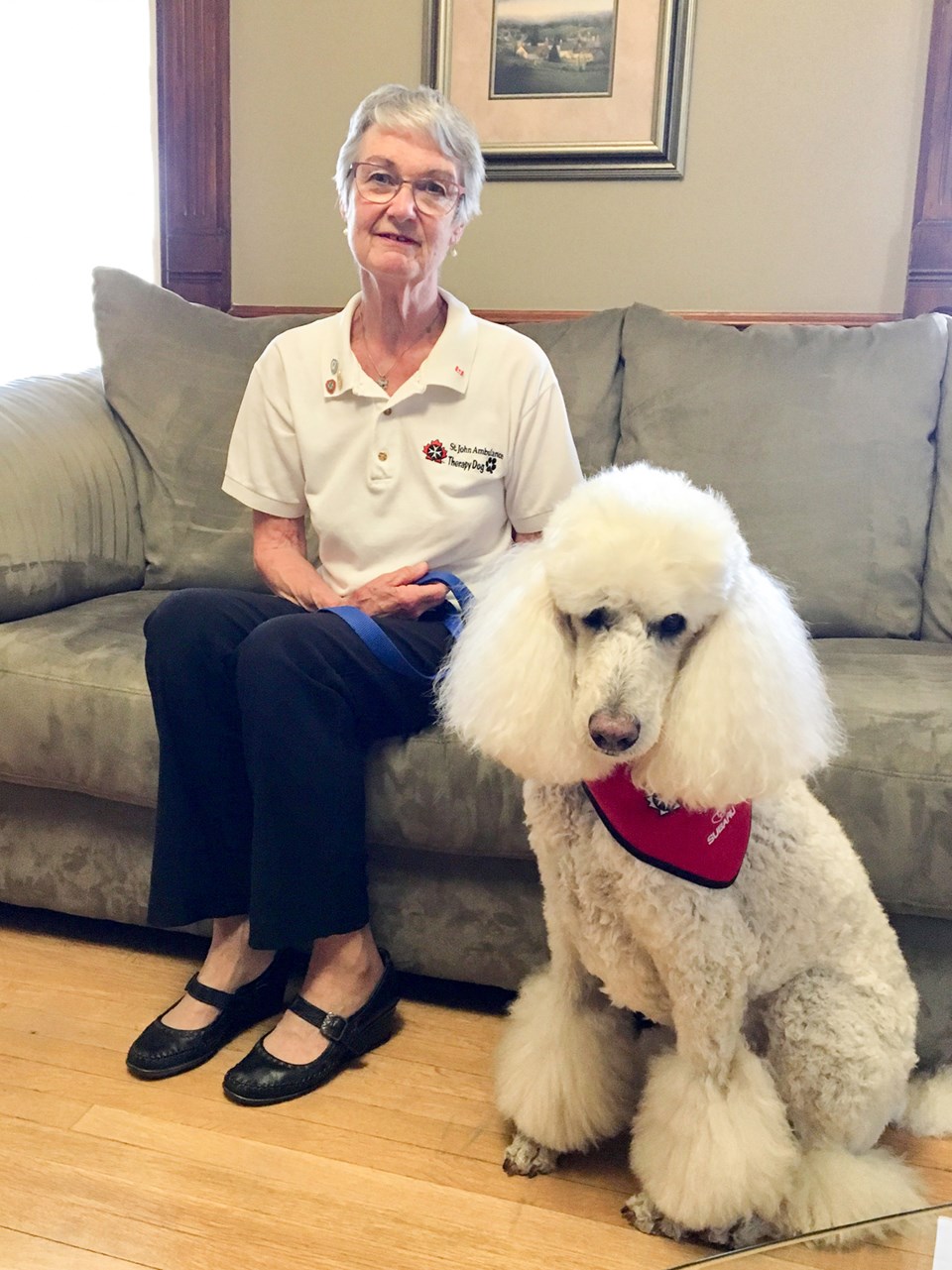Troy Shantz
Kizzi and Kimba are good at offering support, and doing so without a word.
The standard poodles are two of four resident therapy dogs at St. Joseph’s Hospice, where they provide licks, cuddles and emotional comfort to patients and families confronting death.
“My dogs seem to have this knack for knowing who needs attention,” said handler Carol Holmes. “It’s more of a matter of being there bodily, as well as mentally.”
Each dog is assigned a day of the week, said Holmes, noting she’s pretty much “paws off” after they arrive. The canines take the lead.
St. Joseph’s has offered pet therapy for a decade now, said Katlyn Joosten, a program manager. The four-legged volunteers help reduce anxiety and loneliness while providing “the unconditional love that pets are known for,” she said.
“It can be comforting for children coming in for bereavement support to see the familiarity of a dog, and soothing to pet and play (with),” she said.
“It can also serve to decrease the anxiety that our adult clients may feel as they walk in these doors for the first time.”
Kizzi and Kimba patrol the halls of the Christina Street facility with their handler, visiting rooms, or waiting by the front door and greeting arriving patients and family members.
Therapy dogs undergo obedience training and about a dozen tests through St. John’s Ambulance before they’re placed in service, Holmes said.
While hospice staff tend to the physical needs of patients receiving end-of-life care, a friendly animal can provide that extra dose of emotional comfort, she said.
“A dog can do that. A dog can nuzzle his nose into their hand.”
She believes her poodles, which also visit schools, long-term care homes and mental health treatment facilities, are able to sense when people are in pain
“(With pain) they behave a little differently. If it’s been a bad day in general, the dogs will nuzzle a little differently.”
